
A Blog Post by Melanie Sigman
From stone to clay to thin pieces of wood, people have always found ways to write their stories down, but they haven’t always been in a book format. The earliest written documents that would be recognizable as a book to modern people began with the Romans. To replace scrolls, which were cumbersome if one only needed a certain part of it, the Romans developed what was called a “codex.” A codex is a bound group of documents made from material such as papyrus, parchment, or vellum. These volumes had to be completed by hand, making them expensive and out of reach to the general population. It would not be until the middle of the 15th century when a German inventor, Johannes Gutenberg, would become renowned for his creation of the movable-type printing press which allowed books to be mass produced. This faster production method brought the cost of books down considerably and increased literacy through out the Western world.
Whether they are battered and worn with dog-eared pages or in pristine, price tag still attached condition, books are an important part of any society. They represent endless ideas, opinions, adventures, and information. They are more than just “something to read” and careful handling will ensure their continued existence.
Environment and storage
Environment makes a major difference when it comes to the life span of your books. Having books in a controlled climate will help prolong their life, use, and quality. Primarily, you should keep your books away from harsh lighting (including direct sunlight), heat, and humidity. These elements can affect everything from the books binding to its page quality. It is best to keep books in a cool, dry place where they can get air circulation.
Handling and Shelving
Books that are small or medium sized should be stored upright, or vertically, with similar sized books. This will allow the books to support each other. When reaching for your book, do not grab it from the top. Instead, you should be able to grab the book from the sides and slide it out. Do not push your books all the way to wall, but rather leave at least an inch of space, this allows for air circulation. If you do not have enough books to take up the entire shelf, book ends are useful. On the converse, oversized books, such as coffee table books, should be stored flat in stacks of no more than two or three.
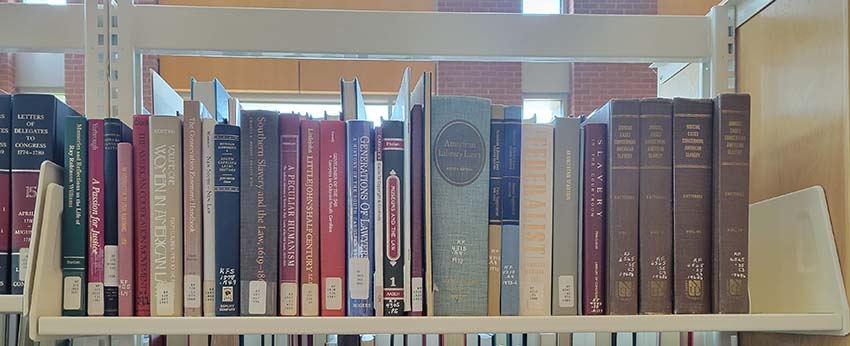
The spine and/or binding of a book are what keeps everything together, and while they are tough, they still need to be protected. Always hold your book with both hands, especially with a hardback book. Having bulky bookmarks can also put undue stress on the spine of your book, weakening it. Wash and dry your hands before handling.
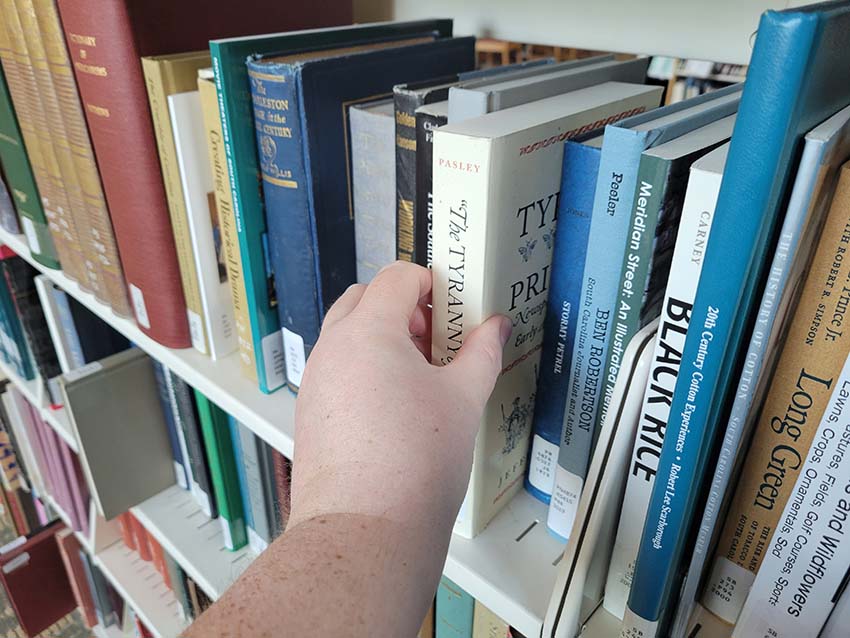
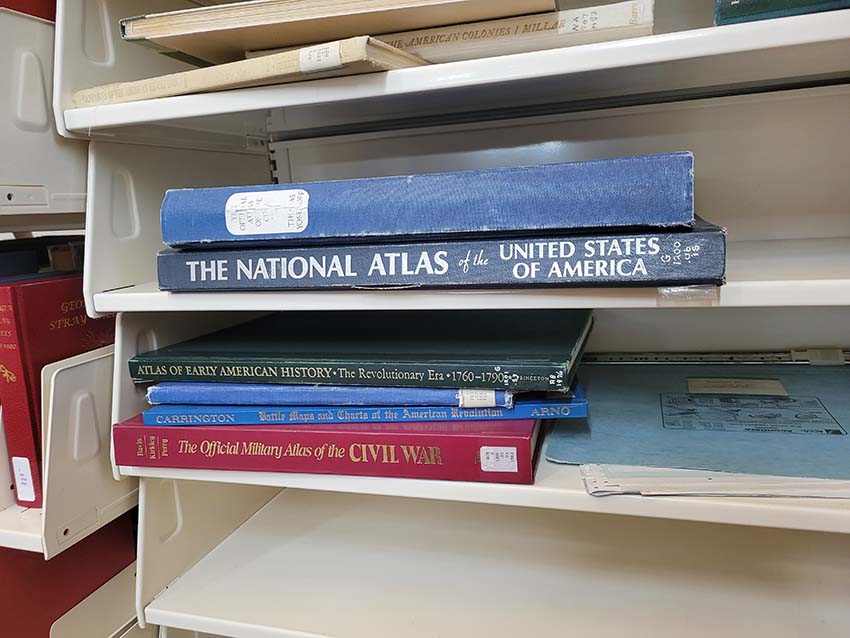
Boxing and conserving
If your book is fragile, the best thing to do is place it in an acid free box. These boxes can be purchased from archive suppliers, such as Gaylord or Hollinger, but can also be purchased at brick and mortar stores like Hobby Lobby and Michaels. You can also create your own book box. Directions are readily available via YouTube. Another option is to get the book conserved by a professional conservator. Conservators have many specializations, ranging from preservation to rebinding to general repair. You can find local conservators through American Institute for Conservation.
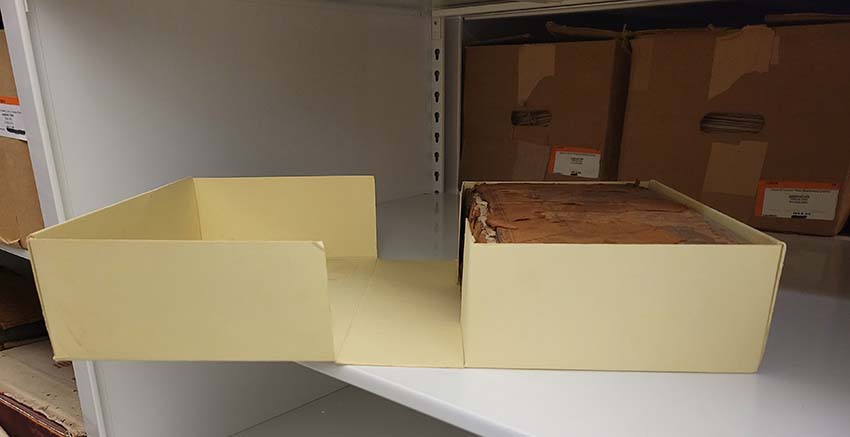
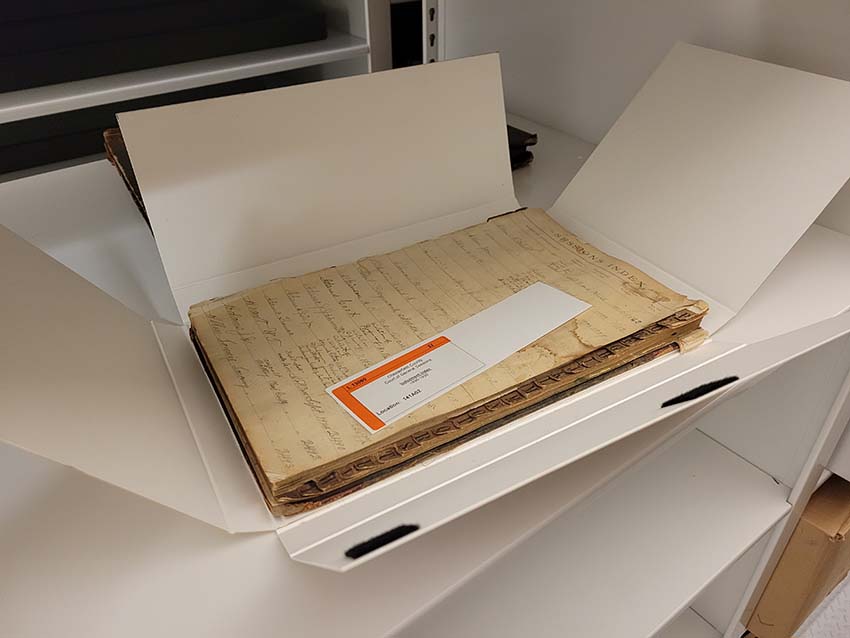
RESOURCES
American Institute of Conservation – Find a conservator:
https://www.culturalheritage.org/about-conservation/find-a-conservator
Gaylord Archival
Hollinger
https://www.hollingermetaledge.com
YouTube – Nik the Booksmith – How to make a custom book box
